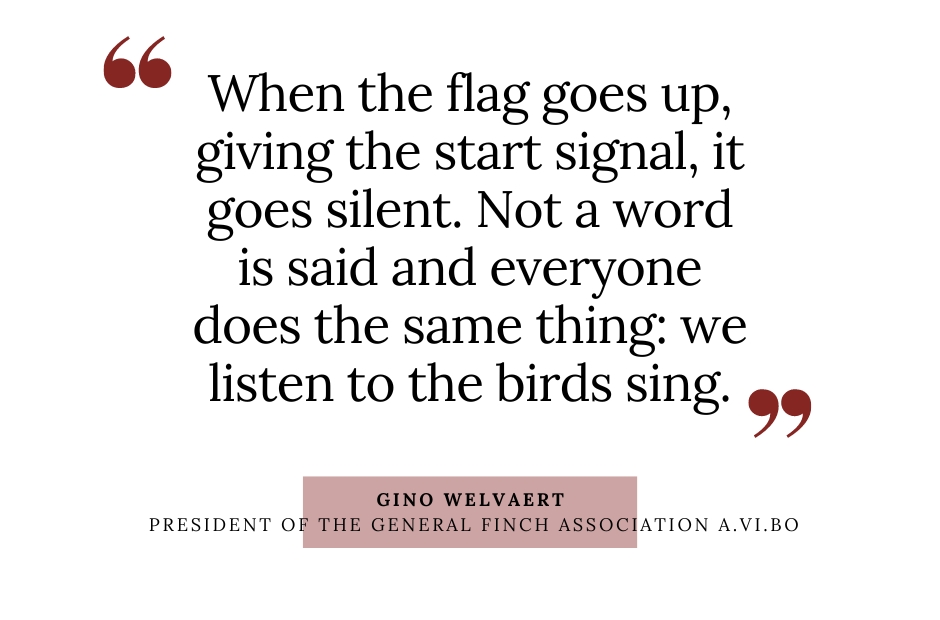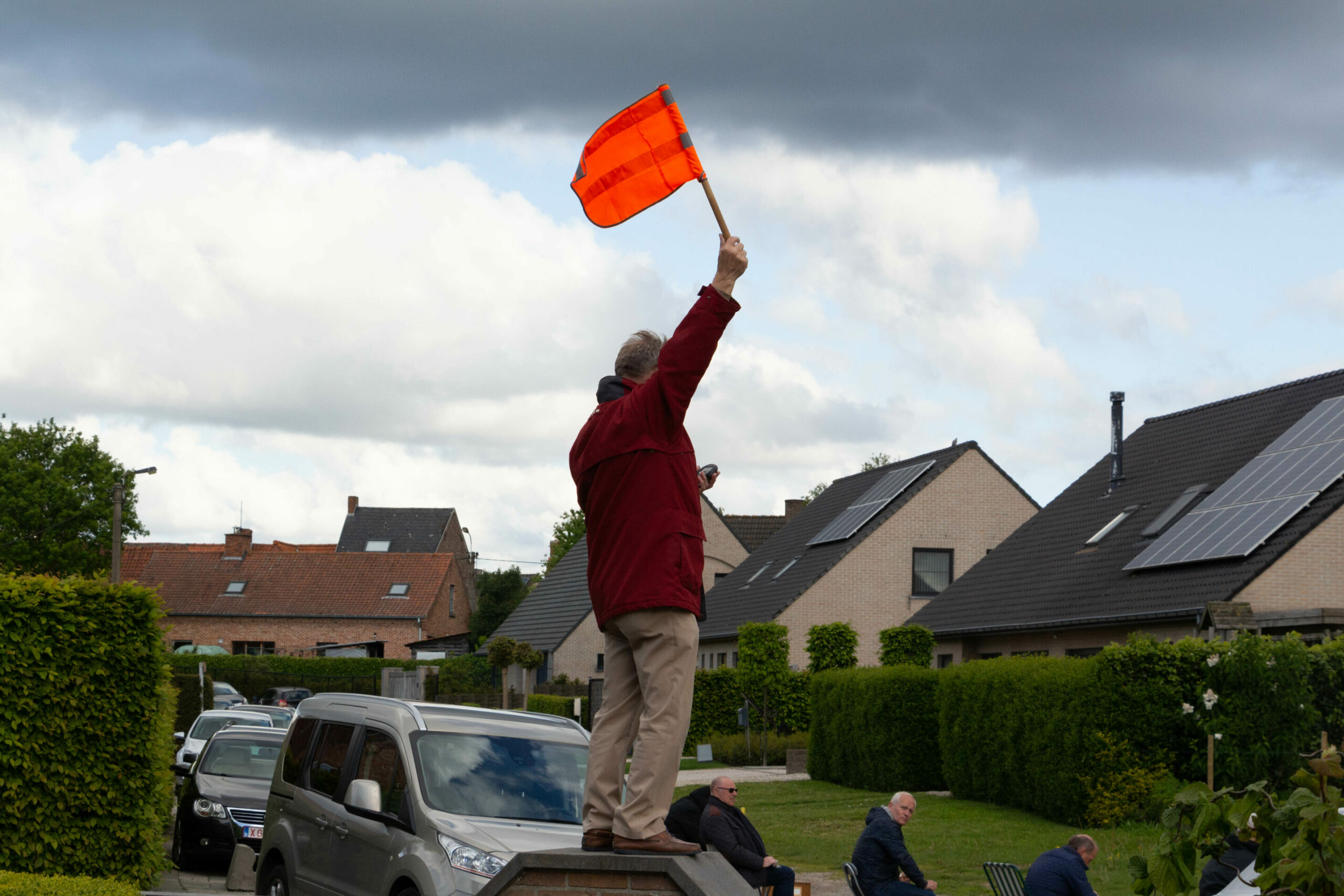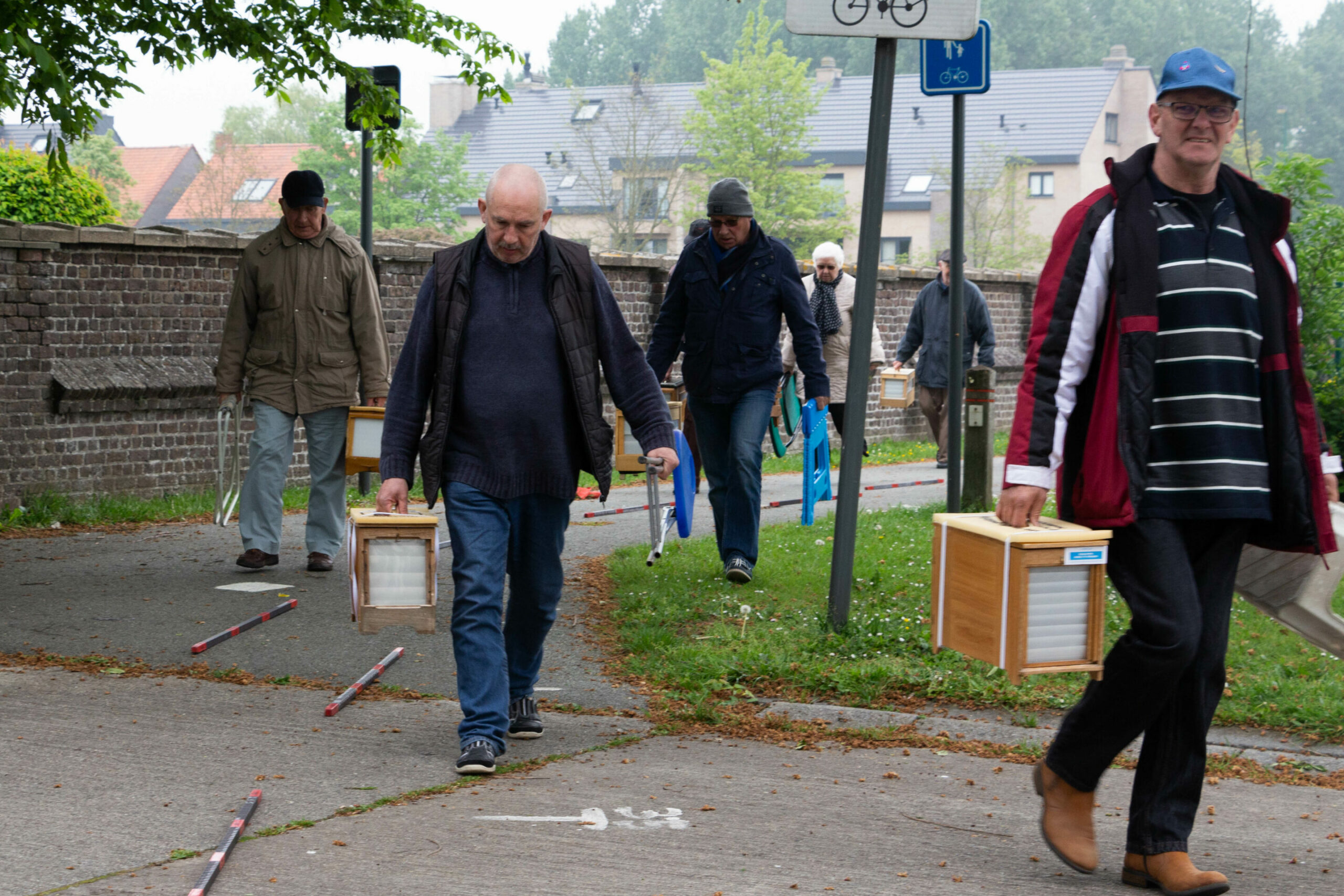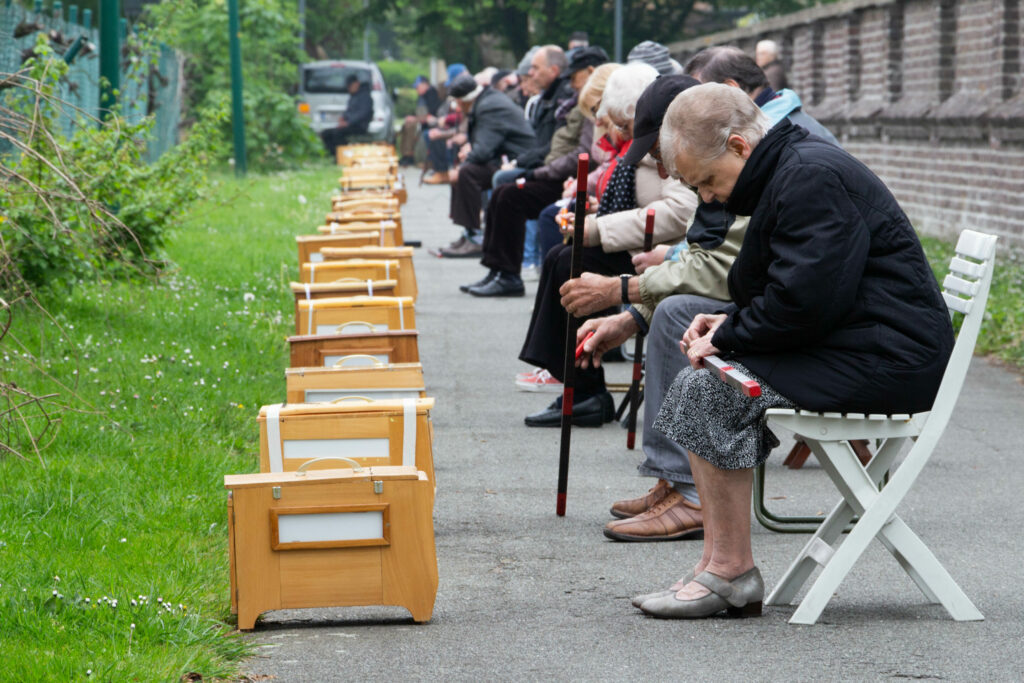"People from all over Belgium – from Limburg to East Flanders and Hainaut – come together. And when the flag goes up, giving the start signal, it goes silent. Not a word is said and everyone does the same thing: we listen to the birds sing."
The Belgian tradition of finch sitting (vinkenzetten), which was inscribed on the Flanders Inventory of Intangible Cultural Heritage in 2013, has a long history. In Flanders, written sources mentioning the activity date back to the end of the 16th century. Nowadays, keen keepers of finches – small to medium-sized birds with stout conical bills and sometimes colourful plumage – meet from 1 April to 31 August to hold singing contests for their birds.
"Finches assert their dominance and their habitat by singing. This is also how they impress females," said Gino Welvaert, President of the General Finch Association A.Vi.Bo, which prioritises uniformity and animal welfare in finch sitting. "They try to outdo each other with their song, which has to be of a certain length and pitch to be most attractive to females."
Modern competitions follow a certain pattern: the participants, or 'finchers', line up their birds in boxes, roughly 2.40 metres apart. "Then you move to the right, so I judge my neighbour's bird," Welvaert told The Brussels Times, adding that the competition is based on trust. When the flag goes up, the crowd goes silent, and the finches start to sing.
"That, for me, is beautiful: just one signal and everyone goes quiet for an hour."

The song has to consist of a certain number of valid whistles – high and low notes – in line with the local song "language". Finches from Wallonia, for example, cannot participate in competitions in Flanders unless they are taught Flemish songs. "Then, using chalk – which is the original method – we record the notes."
After an hour, participants check who has the most songs. "It is an excellent listening exercise. I have often said this would be a good entrance exam for politicians," he laughed.
The coveted title is mainly for honour: there is no prize money or trophy. "I could try to explain how birds win, but no matter how much I claim to know about finches, ultimately we don't know how the birds communicate. They influence each other, and therefore their songs can be different every time. For me, that is the beauty of what we do."
Learning to respect
Modern-day finchers are passionate bird lovers, spending a great deal of time and money to provide their animals with a good life. But this wasn't always the case: the tradition has a dark past that has tainted its reputation.
Initially, finch sitting was a hobby reserved for members of the upper class. However, this changed around the time of the French Revolution, when ordinary citizens were allowed to start keeping birds and compete.
However, participants soon noticed that many finches were afraid of the crowds and stopped singing. "So people decided to blind the birds by cauterising their eyelids, meaning the birds didn't flinch when a human was near." But this was anything but animal-friendly, and in 1920 a ban was implemented, prompted by protests from war veterans who had been blinded by mustard gas during the First World War.
To ease the birds' anxiety, the glass on the bird cages used for the competitions was instead made opaque.

Credit: Gino Welvaert
Another aspect of the tradition that has evolved in favour of animal well-being is catching finches. Until 2002, wild songbirds could still be caught in Belgium. The European directive banning the catching of birds was introduced in 1972, but in Belgium, the introduction was delayed to give finchers the chance to breed birds themselves, as a sufficient number of female finches was needed to ensure the birds would be healthy.
Now, all birds in the competitions are bred healthily and there are established finch breeding programmes. Breeders also exchange birds among each other to ensure diversity, and are subject to other strict rules. For example, finches must have sufficient freedom of movement and only during competitions is a finch temporarily confined in a small cage.
"But we are still often judged on our past and portrayed as people who harm nature, when nothing could be further from the truth," Welvaert said. "I can't remember a day in my life when I didn't have birds; they have always been in my life and I am always looking out for new methods to improve their health. Because at the end of the day, we compete with these birds, and the healthier and happier they are, the better they sing."
Passing on tradition
Welvaert lamented that recognition for finch sitting is lacking. "The strength of the finch community lies in the fact that there is so much knowledge and experience, but this is not tapped into enough by experts and the academic world."
He also referred to the fact that the finch community is one big family. A.Vi.Bo currently has around 5,000 members and the competitions are organised by local associations.

Credit: Gino Welvaert
"People are often only aware of the contests, but finch sitting is so much more. Especially for older people, this is an occasion to come together and talk about how everyone is doing."
The main concern faced by finchers today is the lack of young participants. "Young people no longer stay in the same village where they were born their entire life. However, finch keeping and the contests are, and always have been, family traditions. Most finchers were taught about the hobby from a young age and they pass on the knowledge and passion."
According to Welvaert, this element will remain unchanged. "When I was discussing this with Prime Minister Alexander De Croo, he said: 'I will tell you a secret. Everything will return, and this too.' And he has a point because I now have a grandchild who to my joy is so closely involved and passionate about birds. So I am convinced we have a future."

